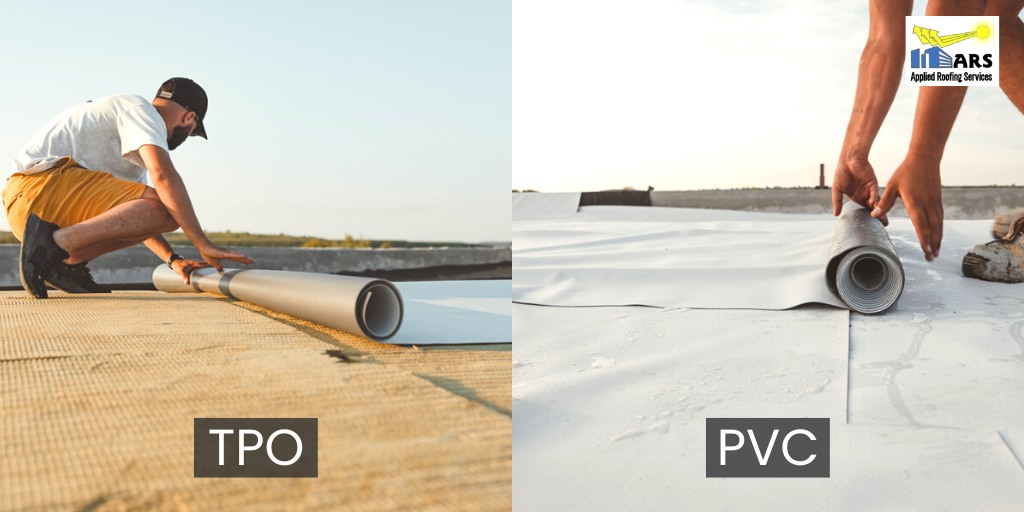


Polyvinyl chloride (PVC) and thermoplastic polyolefin (TPO) are two types of single-ply membranes used in flat and low-sloped roofs. Though TPO was designed to be an effective alternative to PVC, both have their own differences in their characteristics and properties. A result of this is that it may be difficult for property owners to decide which one is the best solution. Read on to learn more about the similarities and differences between TPO and PVC, and which one you should choose.
TPO roofing membranes contain polyethylene or ethylene thermoplastic bound to ethylene propylene rubber. TPO is energy-efficient, recyclable, environmental-friendly, and reduces UV radiation. However, it is less resistant to chemicals, so it may not be the right choice where harsh chemicals or grease traps are involved. In addition, installation can be difficult due to its stiffness.
PVC membranes are made of polymerizing vinyl chloride monomers and plasticizers (to increase flexibility). PVC is resistant to chemicals, weather, and punctures while being easier to install due to its flexibility. However, some plasticizers used in PVC easily break down, increasing the degradation rate.
Also read: SWITCH TO PVC ROOFING FOR ECO-FRIENDLY AND DURABLE ROOFING
Both TPO and PVC are
Both can be installed the same way in which you can either fully adhere (glue) on the same surfaces or mechanically fasten (mixture of screwing and heat welding) the membranes on a rigid sub-surface, such as a Densdeck or ISO board. Fully adhering gives a smooth finishing while allowing you to install on structural or lightweight concrete, or any other surface where mechanical installation is impossible.
TPO and PVC have some differences in terms of:
PVCs are more expensive compared to TPOs. However, not all TPOs are designed equally, for the reason that you can get both low-cost and high-quality TPOs.
Compared to TPO, PVC is highly resistant to fire which makes it a good choice for low-sloped roofs that have balconies above them.
PVCs are more flexible compared to TPO because of the addition of plasticizers. However, the plasticizers can penetrate the surface and flash off in a low-quality PVC membrane.
Though high-quality TPO can resist weather if installed properly, it cannot survive extremely hot climates. On the other hand, PVC can withstand extremely high temperatures.
TPO does not resist grease, animal fats, and acids. Therefore, grease traps and cooking exhausts will quickly ruin a TPO roof. However, PVC can combat grease traps.
TPO does not withstand ponding water. Nevertheless, PVC is waterproof, so it can resist ponding water and even constant dampness.
Also read: EPDM VS. TPO: WHICH ROOFING MEMBRANE SHOULD YOU CHOOSE?
While both PVC and TPO have some advantages and disadvantages, the one you choose depends on your budget, property’s location, and condition. You can hire a roofing service or contractor to consult with to help you make the right choice.
Looking for the best commercial roofing service in Los Angeles, Orange County, or San Bernardino? Contact Applied Roofing Services today at 714-632-8418 for more information on commercial roofing solutions. You can also get a quote online.